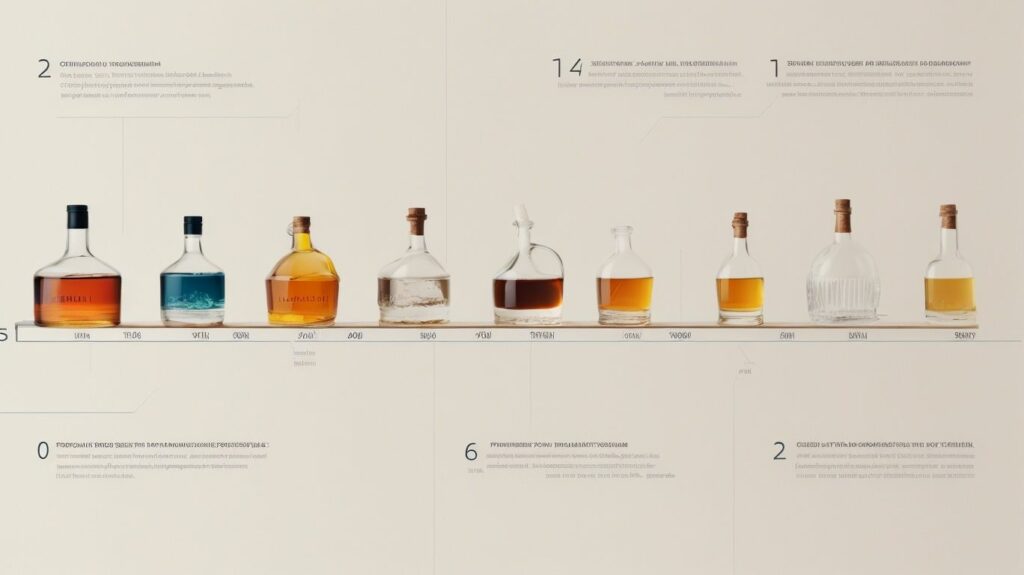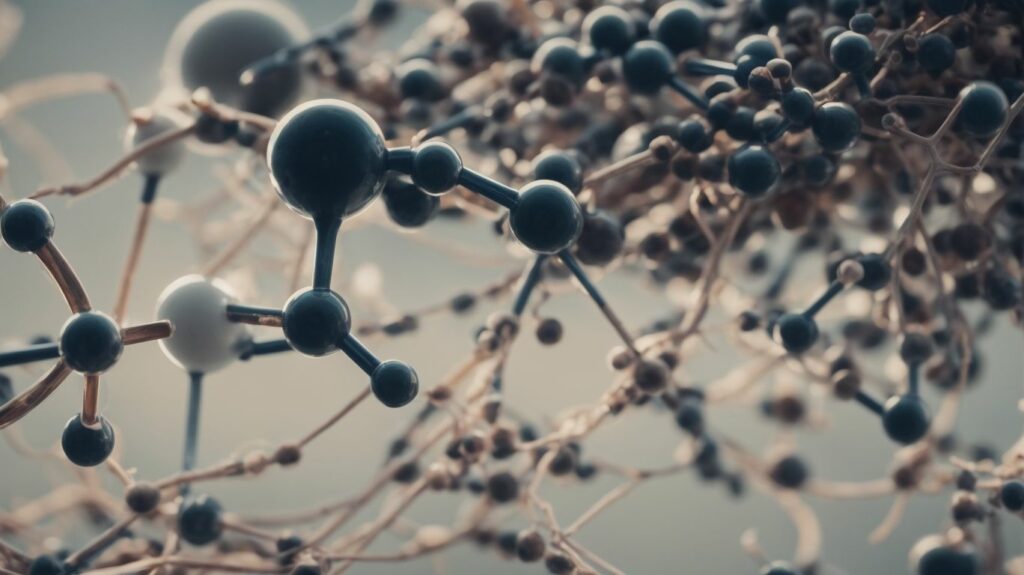20+ Years Experience
Specialist Alcohol Help

Alcohol addiction, also known as alcoholism, is a chronic and progressive disorder characterised by excessive and uncontrolled drinking despite negative consequences. It is considered a disease that affects not only the individual but also their loved ones and society as a whole.
According to the National Institute on Alcohol Abuse and Alcoholism (NIAAA), an estimated 14.5 million adults in the United States struggle with alcohol use disorder (AUD). Alcohol addiction has detrimental effects on the brain, body, and emotional well-being of an individual. It is a disorder that affects all aspects of a person’s life, from their physical health to their relationships and social functioning.
A study published in the Journal of Neurology, Neurosurgery & Psychiatry found that heavy alcohol consumption can lead to structural and functional changes in the brain, leading to cognitive impairment and increased risk of dementia. The physical effects of alcohol addiction are widespread and can lead to various health problems, including liver disease, heart disease, and cancer. Alcohol consumption also weakens the immune system, making individuals more susceptible to infections and illnesses. Prolonged alcohol abuse can cause irreversible damage to the body and have long-term health consequences.
The emotional and social effects of alcohol addiction can be just as damaging as the physical effects. Alcohol abuse can often lead to strained relationships with loved ones, loss of employment and financial stability, and social isolation. Additionally, individuals with alcohol addiction are at a higher risk of developing mental health issues such as depression, anxiety, and suicidal thoughts.
Alcohol addiction is considered bad because it has severe consequences on the individual and society. It can lead to physical and mental health problems, strain relationships, and have a negative impact on society. According to a study published in The Lancet, alcohol is the leading risk factor for premature death and disability worldwide, causing 3.8% of all global deaths. It also contributes to various social issues, including crime, violence, and economic burden.
Fortunately, there are various treatment options available for individuals struggling with alcohol addiction. These include therapy, support groups, medication, and rehabilitation programmes. Seeking help and support is crucial in overcoming alcohol addiction and improving overall well-being.
Alcohol addiction, also known as alcoholism, is a chronic disease characterized by an inability to control or stop drinking despite negative consequences. It can lead to a range of health issues, including liver damage, heart problems, and mental health disorders. Additionally, it can impact relationships, careers, and overall quality of life. Understanding what alcohol addiction is and its detrimental effects is crucial in addressing and combating this widespread issue.
The prohibition era in the United States, from 1920 to 1933, was a period when the production, importation, transportation, and sale of alcoholic beverages were banned nationwide. This was an attempt to reduce crime and corruption, solve social problems, reduce the tax burden created by prisons and poorhouses, and improve health and hygiene in America.
Brain Structure: Alcohol alters brain structure, affecting memory, decision-making, and emotional regulation.
Neurotransmitters: It disrupts neurotransmitter levels, leading to impaired coordination, slurred speech, and mood changes.
Neurogenesis: Chronic use reduces neurogenesis, impacting learning and cognitive function.
To mitigate alcohol’s impact, seek professional help, join support groups, and engage in healthy activities.
During alcohol addiction, the brain undergoes chemical and structural changes, affecting its function and communication. The brain’s reward system becomes dysregulated, leading to increased cravings and tolerance. Additionally, alcohol damages the brain’s white matter, impairing cognitive abilities and emotional regulation.
Alcohol addiction can lead to various detrimental physical effects, such as liver damage, increased risk of heart disease, weakened immune system, and neurological complications. Additionally, it can result in vitamin deficiencies and gastrointestinal issues, impacting overall health.
Fact: Long-term alcohol abuse can lead to irreversible brain damage, affecting cognitive function and emotional regulation.
Alcohol, when consumed, enters the bloodstream through the stomach and small intestine. It then travels to the brain, affecting neurotransmitters and leading to changes in mood and behaviour. Alcohol also impacts the liver, causing inflammation, scarring, and fatty liver. Excessive alcohol use can result in cardiovascular problems such as high blood pressure and cardiomyopathy.
Pro-Tip: Stay informed about how alcohol affects the body to make conscious decisions about consumption.
The long-term health effects of alcohol addiction can be severe, impacting various bodily systems. These effects include:
The social and emotional effects of alcohol addiction can be devastating. Relationships may suffer due to increased conflict, dishonesty, and emotional distance. Isolation and loneliness often accompany addiction, leading to mental health issues such as depression and anxiety. Employment and financial instability can worsen emotional well-being. Additionally, alcohol addiction can lead to legal issues and a damaged reputation, exacerbating the emotional toll.
Communication breakdown: Alcohol addiction can lead to poor communication, misunderstandings, and arguments within relationships.
Trust issues: Addicted individuals may breach trust, break promises, or engage in deceptive behavior, causing trust issues in relationships.
Emotional distance: Addiction can result in emotional withdrawal, leaving partners feeling disconnected and isolated.
Co-dependency: Loved ones may enable addictive behavior, fostering a co-dependent relationship dynamic.
Alcohol addiction can lead to various psychological effects, including depression, anxiety, and impaired judgement. It can exacerbate existing mental health conditions and lead to mood swings, cognitive impairment, and memory problems. Individuals may experience issues with concentration, sleep disturbances, and increased irritability. Seeking professional help and support from loved ones is crucial for addressing these psychological impacts.
Pro-tip: Engaging in mindfulness practices and seeking therapy can aid in managing the psychological effects of alcohol addiction.
Alcohol addiction is detrimental due to its adverse effects on physical health, mental well-being, and social relationships. Excessive consumption can lead to liver damage, cardiovascular issues, and an increased risk of accidents. It can also contribute to depression, anxiety, and impaired judgement. Additionally, alcohol addiction can strain relationships and lead to isolation.
Pro-tip: Seeking professional help and building a strong support network can greatly aid in overcoming alcohol addiction.
Consequences of alcohol addiction include health issues like liver disease, heart problems, and neurological damage. Socially, it can lead to strained relationships, job loss, and legal troubles. Emotionally, it may cause depression, anxiety, and low self-esteem.
The consequences of alcohol addiction have been documented throughout history, with evidence of its detrimental impact on individuals, families, and societies.
Financial impact: Alcohol addiction leads to increased healthcare costs, loss of productivity, and economic strain on society.
Social burden: It contributes to family breakdowns, domestic violence, and child neglect, affecting communities and social services.
Legal implications: Alcohol-related crimes, accidents, and law enforcement expenses add to the societal repercussions.
Public health concerns: Strain on healthcare systems, alcohol-related illnesses, and fatalities impact society as a whole.
If you or a loved one is struggling with alcohol addiction, seeking treatment is crucial for long-term recovery. In this section, we will discuss the various treatment options available for alcohol addiction. From utilising the Drinkaware App to seeking support from national services, medical professionals, and support groups, we will explore the different avenues for overcoming alcohol addiction. Additionally, we will also delve into the importance of involving family and loved ones in the recovery process.
Download the Drinkaware app from the App Store or Google Play Store.
Open the app and create an account using your email or social media accounts.
Complete the setup process by providing relevant personal information.
Explore the features such as tracking your alcohol consumption, setting goals, and accessing resources.
Pro-tip: Utilize the Drinkaware app to monitor and manage your alcohol intake effectively, helping you make informed decisions about your drinking habits.
National alcohol support services offer essential help to people struggling with alcohol addiction. These services include a wide range of resources and support, such as counselling, therapy, and access to support groups.
Examples of national alcohol support services include:
Medical professionals and GP surgeries play a crucial role in addressing alcohol addiction. They provide medical assessments, offer personalised treatment plans, and monitor progress. GPs can refer individuals to specialised addiction services, prescribe medications to manage withdrawal symptoms, and offer counselling. By seeking support from medical professionals and GP surgeries, individuals can access comprehensive care to address their alcohol addiction effectively.
Behavioural therapy and counselling for alcohol addiction involve several key steps:
Seeking professional help and actively participating in therapy sessions are crucial for effectively managing alcohol addiction.
Consult a medical professional to determine the need for medication and detoxification.
Follow the prescribed medication regimen for alcohol addiction treatment.
Undergo detoxification under medical supervision to safely manage withdrawal symptoms.
Engage in behavioural therapy and counselling alongside medication and detoxification for comprehensive recovery.
Seek support from family and loved ones to enhance the effectiveness of medication and detoxification.
Considering the severity of alcohol addiction, it’s crucial to prioritize professional guidance and support throughout the medication and detoxification process.
Embracing a holistic approach to treatment can significantly improve the chances of successful recovery.
Look for local support groups focused on alcohol addiction recovery.
Join online peer support communities to connect with individuals facing similar challenges.
Participate in group therapy sessions to share experiences and gain insights from others.
Engage in peer-led support meetings, such as Alcoholics Anonymous, for guidance and encouragement.
Consider professional guidance to select the most suitable support group or peer support option.
Support from family and loved ones is crucial in overcoming alcohol addiction. Their understanding and encouragement can strengthen the individual’s resolve to seek treatment and sustain recovery. Family involvement in therapy sessions can address underlying issues and rebuild trust, fostering a supportive environment for long-term sobriety.
Visit the Begbies Traynor website to access their services. Explore the range of services offered, including insolvency advice and restructuring support. Contact Begbies Traynor to schedule a consultation and discuss your specific needs. Work closely with the professionals at Begbies Traynor to develop a tailored solution for your situation.
A client once sought Begbies Traynor’s assistance with insolvency advice and was impressed by their comprehensive support, which led to successful debt restructuring.
The main stages of alcohol dependence include high-risk drinking, alcohol misuse, and alcohol addiction. These stages can have negative impacts on a person’s health, including increased risk of coronary alcohol related heart disease, damage to the nervous system and blood vessels, and decreased reaction time.
While the exact causes of alcohol addiction can vary, some common underlying factors may include using alcohol as a temporary distraction from difficult situations, developing an emotional attachment to alcohol, and using alcohol as a way to cope with negative emotions.
Some potential signs of alcohol dependence include intense cravings for alcohol, difficulty controlling the amount of alcohol consumed, experiencing physical withdrawal symptoms when not drinking, and continuing to drink despite negative consequences to one’s health or personal life.
No, alcohol addiction can also have harmful consequences for non-dependent drinkers. Regular and heavy drinking, even without a physical addiction, can lead to a range of serious health problems, including bowel cancer, heart disease, and alcohol poisoning.
The UK Chief Medical Officers advise that it is safest to not drink more than 14 units of alcohol per week on a regular basis. This includes not drinking more than 6 units in one sitting and having several alcohol-free days each week.
If you or someone you know is struggling with alcohol addiction, it is important to seek help from a health professional. The Drinkaware Drinking Check is a confidential assessment that can help determine if you may have a problem with alcohol. Treatment options may include therapy, support groups, and medical interventions to address any physical addiction.
Alcohol withdrawals refer to the physical and psychological symptoms experienced when someone abruptly stops or significantly reduces their alcohol consumption after prolonged and excessive use. These withdrawals are a result of the body’s dependence on alcohol and can range from mild to severe.
Symptoms of alcohol withdrawals can vary from person to person, but some common ones include:
The duration of alcohol withdrawal symptoms can also vary depending on the severity of alcohol addiction and individual factors. Generally, mild symptoms can last for a few days to a week, while more severe symptoms can persist for weeks.
The risks of alcohol withdrawals should not be underestimated, as they can lead to life-threatening conditions such as:
Treatment for alcohol withdrawals typically involves a combination of medical detox, medications, and therapy or support groups. Medical detox provides a safe and supervised environment for individuals to go through withdrawals and manage any complications that may arise. Medications may also be prescribed to alleviate symptoms and reduce the risk of severe complications.
In addition to medical treatment, there are also some tips that individuals can follow to help with alcohol withdrawals, such as:
It is essential to seek medical help when dealing with alcohol withdrawals to ensure a safe and successful recovery. With proper treatment and support, it is possible to overcome alcohol addiction and manage withdrawals effectively.
Alcohol withdrawals encompass a range of symptoms that occur when individuals who are dependent on alcohol abruptly stop or reduce their intake. These symptoms can include anxiety, tremors, sweating, nausea, and in severe cases, seizures or hallucinations. It’s crucial for individuals experiencing alcohol withdrawals to seek medical attention to manage the symptoms and prevent potential complications.
Alcohol withdrawal can be a difficult and uncomfortable experience, both physically and mentally. In this section, we will explore the various symptoms that can arise during alcohol withdrawals, including anxiety, insomnia, nausea and vomiting, headaches, and tremors. By understanding the potential symptoms, we can better prepare for and manage them in a healthy and effective way. Let’s dive into the details of what to expect during alcohol withdrawal.
Dealing with anxiety during alcohol withdrawals involves taking specific steps to manage symptoms:
Remember to prioritise self-care and seek professional guidance for a holistic approach to managing anxiety during alcohol withdrawals.
Create a calming bedtime routine by avoiding stimulating activities before sleep.
Establish a consistent sleep schedule to regulate your body’s internal clock.
Avoid caffeine and nicotine, especially close to bedtime.
Consider relaxation techniques like deep breathing, meditation, or gentle yoga to promote sleep.
Consult a healthcare professional if insomnia persists or worsens.
Stay Hydrated: Drink small amounts of clear fluids like water, broths, or herbal teas to prevent dehydration and replenish lost fluids during nausea and vomiting.
Eat Nutritious Meals: Consume bland, easy-to-digest foods like bananas, rice, applesauce, and toast to ease nausea and vomiting.
Get Enough Sleep: Rest and sleep can aid in the recovery process and alleviate symptoms of nausea and vomiting.
Stay Hydrated: Drink plenty of water to prevent dehydration, which can exacerbate headaches.
Get Enough Sleep: Adequate rest can help alleviate headaches and promote overall well-being.
Eat Nutritious Meals: Consuming balanced, healthy meals can aid in managing headaches.
Avoid Triggers: Steer clear of known headache triggers such as certain foods or environmental factors.
Seek Professional Help: Consult a healthcare professional for guidance on managing and treating headaches during alcohol withdrawals.
Did you know? Dehydration is a common contributor to headaches during alcohol withdrawal.
Recognise Symptoms:
Identify involuntary trembling of the hands, arms, head, or other body parts.
Seek Medical Help:
Consult a healthcare professional to evaluate the severity and provide appropriate treatment.
Stay Calm:
Maintain a calm environment to minimise stress and anxiety, reducing the intensity of tremors.
Stay Hydrated:
Proper hydration can alleviate tremors and assist in the detoxification process.
Medication:
Depending on the severity, medication may be prescribed to manage tremors during alcohol withdrawal.
The duration of alcohol withdrawal symptoms varies but generally lasts from a few days to a week. The severity and duration depend on factors like the amount and duration of alcohol consumption, overall health, and medical history.
Seek medical guidance for a personalised withdrawal plan. Stay hydrated and maintain a balanced diet. Engage in relaxation techniques to manage stress. Get support from friends, family, or support groups.
Alcohol withdrawal can be a challenging and dangerous process, particularly for individuals who have been heavily reliant on alcohol for an extended period. The risks of alcohol withdrawal are numerous and can lead to severe consequences if not properly managed. In this section, we will explore the potential risks of alcohol withdrawal, including the potentially life-threatening condition of delirium tremens, seizures, and the long-term effects of Wernicke-Korsakoff Syndrome. By understanding these risks, we can take the necessary precautions to ensure a safe and successful withdrawal from alcohol.
Dealing with delirium tremens requires immediate medical attention for safe management.
Seek Emergency Care: If experiencing symptoms like severe confusion, hallucinations, fever, or seizures, seek urgent medical care.
Medical Supervision: Receive treatment in a specialised medical setting for close monitoring of vital signs and symptoms.
Medication: Doctors may administer benzodiazepines to alleviate symptoms and prevent complications.
It’s crucial to prioritise safety and seek professional help promptly in cases of delirium tremens.
Consult a healthcare professional immediately if you or someone experiences 2. seizures during alcohol withdrawal. Ensure a safe environment to prevent injury during a seizure. Administer prescribed anticonvulsant medication if recommended by a doctor.
When addressing 2. seizures during alcohol withdrawal, it’s crucial to seek medical help promptly, create a safe environment, and follow prescribed medication for effective management.
Wernicke-Korsakoff syndrome is a severe brain disorder resulting from a deficiency of thiamine (vitamin B1). It is often linked to chronic alcohol misuse and can lead to mental confusion, paralysis of eye movements, and impaired memory. If left untreated, it can be life-threatening.
Fact: Wernicke-Korsakoff syndrome is a combination of two separate conditions, Wernicke’s encephalopathy and Korsakoff syndrome, both of which are caused by thiamine deficiency.
For individuals struggling with alcohol addiction, the thought of facing alcohol withdrawals can be daunting. However, there are various treatment options available to help manage and alleviate these symptoms. In this section, we will discuss the different approaches to treating alcohol withdrawals, including medical detox, medications, and therapy and support groups. By understanding these options, individuals can make informed decisions about their journey towards recovery.
Assessment: A medical team evaluates the individual’s physical and mental health, substance use history, and withdrawal symptoms.
Stabilisation: Medications are administered to ease withdrawal symptoms and stabilise the individual’s health.
Transition to Treatment: After detox, the individual is encouraged to engage in further treatment, such as therapy or support groups, to address the underlying causes of alcohol misuse.
Antianxiety medications: Such as diazepam, chlordiazepoxide, or lorazepam, help manage anxiety and agitation.
Anticonvulsant medications: Like carbamazepine or valproate, can be prescribed to prevent or treat seizures.
Antipsychotic medications: These may be used to address hallucinations or severe confusion during withdrawal.
Fact: Medications for alcohol withdrawal are administered carefully to prevent dependency and misuse.
Find a support group: Look for local or online support groups that specialise in alcohol addiction recovery.
Participate in therapy: Engage in individual or group therapy sessions to address underlying issues and develop coping strategies.
Attend counselling sessions: Seek professional guidance from counsellors or therapists specialising in addiction treatment.
Pro-tip: Consistent participation in therapy and support groups can significantly enhance the success of overcoming alcohol withdrawals.
Alcohol withdrawals can be a difficult and uncomfortable experience for those trying to quit drinking. While it is important to seek professional help, there are also some tips that can help ease the symptoms and make the process more manageable. In this section, we will discuss five key tips for managing alcohol withdrawals: staying hydrated, getting enough sleep, eating nutritious meals, avoiding triggers, and seeking professional help. By following these tips, you can better navigate the challenging journey of quitting alcohol.
Drink plenty of water throughout the day to stay hydrated and flush out toxins. Consume electrolyte-rich drinks to replenish lost minerals and maintain hydration. Avoid excessive caffeine and sugary beverages, as they can lead to dehydration.
In the 19th century, the discovery of bacteria’s role in causing diseases revolutionised medicine, leading to significant advancements in public health and sanitation practices.
Establish a consistent sleep schedule, aiming for 7-9 hours of sleep each night.
Create a relaxing bedtime routine, such as reading or taking a warm bath, to signal your body that it’s time to wind down.
Avoid caffeine and electronics before bedtime to promote better sleep quality.
Ensure your sleep environment is comfortable, quiet, and dark to enhance restfulness.
Include a variety of fruits, vegetables, whole grains, and lean proteins in your meals. Consume foods rich in vitamins and minerals to support your body during withdrawal. Avoid processed and sugary foods that can cause blood sugar spikes and crashes.
A friend of mine struggled with alcohol withdrawals and found that focusing on consuming nutritious meals helped alleviate some symptoms and improved his overall well-being during the recovery process. By sticking to a balanced and healthy diet, he was able to manage the physical and emotional challenges more effectively.
Avoid social settings where alcohol consumption is prevalent
Identify and manage stress triggers
Engage in alternative activities to replace drinking habits
Seek support from friends, family, or support groups
Create a supportive environment by removing alcohol from your home
Contact a healthcare professional specialised in addiction treatment for personalised guidance.
Consult a psychiatrist or psychologist experienced in managing alcohol withdrawal symptoms.
Explore rehabilitation centres or outpatient programmes offering professional support and medical supervision.
Visit the Begbies Traynor website to explore their services and expertise. Contact Begbies Traynor via phone or email to discuss your specific needs and situation.
Schedule an initial consultation with a Begbies Traynor professional to assess your requirements and develop a tailored plan. Once you’ve engaged with Begbies Traynor, follow their guidance closely to address your financial challenges effectively.
Fact: Begbies Traynor has been providing expert insolvency advice for over 30 years, assisting individuals and businesses in financial distress.
How can I cope with alcohol withdrawal symptoms? There are natural remedies and activities that can help ease the discomfort of alcohol withdrawal. Here are twenty different ways to cope with withdrawal, including deep breathing techniques, meditation, exercise, and listening to music. Can I use natural remedies to manage alcohol withdrawal? Yes, there are effective ways to cope with alcohol withdrawal using natural remedies such as eating fruits, wholemeal bread, and brown rice. These foods can help regulate blood sugar levels and keep your mind occupied during the detox process. What resources are available for those looking to cut down on alcohol consumption? The UK Chief Medical Officers advise drinking no more than 14 units a week to keep health risks low. The Drinkaware self-assessment tool can help identify if your alcohol consumption is putting your health at risk. Additionally, the Drinkaware app, available on the Google Play Store, can help track your drinking diary and provide access to confidential services and a service finder. Is it dangerous to suddenly decrease or stop drinking alcohol? Yes, heavy drinkers who suddenly decrease or stop drinking may experience alcohol withdrawal symptoms, which can be dangerous and should be taken seriously. Seeking medical advice from an addiction treatment professional is recommended for those concerned about their alcohol dependency. How important is it to stay hydrated during alcohol withdrawal? It is crucial to drink lots of fluids, especially those with electrolytes, to help ease the discomfort of alcohol withdrawal and prevent dehydration and nausea. Common drinks that contain electrolytes are sports drinks and lower strength alcohol options, such as standard strength cans or slightly lower strength drinks. When is seeking medical attention necessary during alcohol withdrawal? Seeking medical attention is necessary if experiencing repeated vomiting, severe shaking, or hallucinations. Delirium tremens, a life-threatening condition, is a serious warning sign of alcohol withdrawal and requires immediate medical care.
Alcohol addiction, also known as alcohol use disorder, is a chronic and progressive condition in which a person is unable to control their drinking, despite negative consequences. It is a significant public health concern, with an estimated 15 million adults in the United States alone struggling with alcohol addiction.
This article will discuss the signs and symptoms of alcohol addiction, its causes, treatment options, and recovery options.
Signs and symptoms of alcohol addiction can vary from person to person, but some common ones include:
The causes of alcohol addiction are complex and can include genetic, environmental, and mental health factors. Some potential causes include:
Treatment for alcohol addiction typically involves a combination of detoxification, therapy and counselling, and medication. Detoxification is the process of removing alcohol from the body and may be done in a hospital or addiction treatment centre under medical supervision. Therapy and counselling can help individuals address the underlying issues that contribute to their addiction and develop coping strategies. Medications may also be prescribed to help with cravings and withdrawal symptoms.
After going through treatment, it is essential to continue with recovery options to prevent relapse. These can include joining support groups such as Alcoholics Anonymous, making lifestyle changes such as avoiding triggers and practising self-care, and seeking continued care and relapse prevention strategies. Recovery is a lifelong process, and seeking ongoing support can greatly increase the chances of maintaining sobriety.
Alcohol addiction, also known as alcoholism, is a chronic disease characterized by an inability to control drinking despite negative consequences. It often includes a strong craving for alcohol, continued use despite problems, and physical dependence. People with alcohol addiction may build up a tolerance, experience withdrawal symptoms when they stop drinking, and drink more than they intended to. Seeking professional help is crucial to address what is alcohol addiction and to facilitate recovery.
Identifying the signs and symptoms of alcohol addiction is the first step towards seeking help and beginning the recovery process. In this section, we will discuss the physical and behavioural symptoms that may indicate a person is struggling with alcohol addiction. By understanding these symptoms, we can better recognise the need for treatment and support for ourselves or our loved ones. So, let’s delve into the two categories of symptoms: physical and behavioural.
Intoxication: Slurred speech and lack of coordination.
Withdrawal: Shaking, sweating, and nausea.
Tolerance: Needing more alcohol to feel its effects.
Blackouts: Memory lapses from drinking.
Physical health issues: Liver disease, gastrointestinal problems.
In the early 1900s, alcohol addiction was often overlooked, with limited understanding of its physical symptoms. Treatment typically involved isolation in asylums, lacking the multidisciplinary approach used today.
Increased secrecy regarding drinking habits
Loss of interest in activities not involving alcohol
Engaging in risky behaviours while intoxicated
Alcohol addiction is a complex issue that can have a variety of underlying causes. In this section, we will discuss the different factors that can contribute to the development of alcohol addiction. From genetic predispositions to environmental influences and mental health conditions, we will explore the diverse causes of this serious disorder. By understanding the root causes of alcohol addiction, we can better understand the importance of finding effective recovery and treatment options.
Genetics plays a significant role in alcohol addiction, with studies showing that genes contribute to about half of the risk for addiction. Specific genetic variations, such as variations in the genes that influence the metabolism of alcohol, can affect an individual’s susceptibility to alcohol addiction. Understanding the genetic factors can help in tailoring personalised treatment plans for individuals struggling with alcohol addiction.
Environmental factors play a significant role in alcohol addiction. Social influences, exposure to alcohol, and stressful living conditions can contribute to the development of addiction. Additionally, peer pressure and cultural acceptance of alcohol consumption can impact an individual’s likelihood of developing addiction.
Assess Mental Health: Evaluate for co-occurring mental health conditions like depression or anxiety.
Integrated Treatment: Offer integrated therapy addressing both alcohol addiction and mental health concerns.
Professional Support: Provide access to mental health professionals to develop coping strategies.
Pro-tip: Addressing mental health alongside alcohol addiction can lead to more effective and sustainable recovery.
For those struggling with alcohol addiction, seeking treatment is often the first step towards a healthier and happier life. There are various treatment options available, each with their own unique benefits and approaches. In this section, we will discuss the different treatment options for alcohol addiction, including detoxification, therapy and counselling, and medications. By understanding the various options, individuals can make informed decisions about their own recovery journey.
Detoxification from alcohol involves several crucial steps:
Fact: Detoxification should always be conducted under medical supervision to ensure safety and effectiveness.
Evaluation: Assess the individual’s specific needs and the severity of their addiction.
Goal Setting: Collaborate with the individual to establish achievable and measurable goals for their recovery.
Therapy Sessions: Engage in regular one-on-one or group therapy to address underlying issues and develop coping strategies.
Support Systems: Encourage the individual to build a strong support network of family, friends, and fellow in-recovery individuals.
John, a successful businessman, struggled with alcohol addiction. Through dedicated therapy and counselling, he not only achieved sobriety but also mended his relationships and revitalised his career.
Consult a medical professional to determine the need for medications.
Common medications for alcohol addiction include disulfiram, acamprosate, and naltrexone.
Medications are used to manage withdrawal symptoms and reduce alcohol cravings.
When considering medications for alcohol addiction, it’s essential to consult a healthcare provider for personalized guidance and to discuss potential side effects or interactions with other medications.
When it comes to alcohol addiction, there are multiple paths to recovery. Each individual may find different methods more effective for their own journey. In this section, we will discuss the various recovery options available for those struggling with alcohol addiction. From joining support groups to making lifestyle changes, we will explore the different approaches that can aid in overcoming this addiction. We will also touch on the importance of continued care and relapse prevention in maintaining long-term sobriety.
Attend support groups such as Alcoholics Anonymous to connect with individuals going through similar struggles. Participate actively in group discussions and share personal experiences to gain insights and support. Seek out local community support groups and online forums to expand your network and find encouragement.
Pro-tip: Consistent participation in support groups can provide valuable accountability and a sense of community, fostering resilience in your journey towards recovery.
Evaluate current lifestyle habits related to alcohol consumption.
Identify triggers and situations prompting alcohol use.
Seek alternative activities and hobbies to replace drinking.
Establish a support network involving friends and family.
Modify social settings to minimize exposure to alcohol.
Develop a comprehensive aftercare plan to support a smooth transition from treatment to daily life.
Engage in ongoing therapy sessions to address potential triggers and maintain mental well-being.
Participate in regular check-ins with a support group or counsellor to stay connected and accountable.
For those struggling with alcohol addiction, finding the right treatment can be a daunting task. However, Priory Hospital Chelmsford offers a comprehensive treatment service that caters to individuals at every stage of their recovery journey. In this section, we will take a closer look at the various treatment services offered at Priory, the different levels of care available, and the accessibility of Priory locations for those seeking treatment. By understanding the services provided by Priory, individuals and their loved ones can make an informed decision on the best course of treatment for alcohol addiction.
Detoxification: A medically supervised process to manage withdrawal symptoms and rid the body of alcohol.
Therapy and Counselling: Individual and group therapy sessions to address psychological aspects.
Medications: Prescribed medications to aid in alcohol addiction treatment and recovery.
Alcohol addiction treatment facilities offer various levels of care, including:
Selecting the appropriate level of care is crucial for effective recovery.
Priory Hospital Chelmsford is conveniently located in Chelmsford, Essex, offering easy accessibility to individuals residing in the surrounding areas. The hospital provides comprehensive treatment services, including detoxification, therapy, counselling, and medications, catering to patients’ varied needs. With multiple Priory locations across the UK, accessibility to specialised alcohol addiction treatment is widely available. Consider exploring Priory Hospital Chelmsford for accessible and comprehensive alcohol addiction treatment options, tailored to individual requirements.
If you or a loved one is struggling with alcohol addiction, seeking professional help is the first step towards recovery. Priory Hospital Chelmsford is a leading treatment facility that offers personalised care for individuals battling addiction. In this section, we will discuss the initial consultation process at Priory Hospital Chelmsford and how it helps create a tailored treatment plan for each patient. With a focus on individualised care, this section will give an insight into the comprehensive approach of Priory Hospital Chelmsford towards alcohol addiction treatment.
Call to arrange an initial consultation appointment.
Complete any necessary forms or questionnaires before the appointment.
Prepare any questions or concerns to discuss during the consultation.
Arrive on time and be open and honest during the meeting.
Listen actively and ask for clarification if needed.
When seeking an initial consultation for alcohol addiction, it’s crucial to be transparent about your condition and communicate any specific needs or expectations to ensure effective support and guidance.
A tailored treatment plan for alcohol addiction encompasses personalized medical, therapeutic, and holistic interventions. This plan considers an individual’s specific needs, addressing underlying mental health conditions and social factors. It integrates detoxification, counselling, medications, and aftercare support, ensuring a comprehensive approach to recovery.
Sarah’s journey to sobriety involved a tailored treatment plan at a renowned facility. The personalised care and ongoing support empowered her to overcome alcohol addiction, leading to a fulfilling, sober life.
Recovery from alcohol addiction often involves a combination of medical treatment, therapy, and support groups. It’s crucial to address underlying mental health issues alongside the addiction. Additionally, it’s important to establish a strong support system and avoid triggers. Seeking professional help and following a personalised treatment plan can significantly improve the chances of successful recovery.
There are four basic levels of care for alcohol treatment: outpatient, intensive outpatient or partial hospitalization, residential, and intensive inpatient.
Modern alternatives for ‘lower intensity’ outpatient care include using a navigator to find a traditional outpatient program, building a custom care team, and utilising telehealth services.
A care team can provide individualised and high-quality care for alcohol treatment, and may include experts such as addiction therapists, primary care clinicians, and mental health providers.
Family therapy, couples therapy, and mutual help groups can be beneficial for both the individual with alcohol addiction and their loved ones in supporting long-term recovery.
A residential inpatient stay for alcohol treatment involves 24-hour treatment settings, including individual counselling, group sessions, medication support, and learning new skills to prevent future alcohol use.
There are various options for treatment, including NHS care, private drug treatment, and charities or organisations specialising in addiction treatment. It is important to assess individual needs and choose the appropriate level of care.
Alcohol withdrawal is the body’s response to suddenly stopping or significantly reducing alcohol consumption after prolonged and heavy use. The process of withdrawal can be uncomfortable and potentially dangerous, making it important for those struggling with alcohol addiction to seek medical help.
Before understanding how long alcohol withdrawals last, it is essential to know the stages of alcohol withdrawal and the symptoms associated with them.
The duration and severity of alcohol withdrawal symptoms vary from person to person, depending on factors such as the amount and frequency of alcohol consumption and overall health. However, the general timeline for the duration of alcohol withdrawal symptoms is:
Certain risk factors can increase the likelihood of experiencing prolonged alcohol withdrawal symptoms, including heavy and long-term alcohol use, previous experience with alcohol withdrawal, co-occurring mental health disorders, and lack of support during the withdrawal process. It is essential to seek medical help during alcohol withdrawal to prevent severe symptoms and ensure a safe and comfortable detoxification process.
Alcohol withdrawal refers to the symptoms that occur when a person who has been drinking heavily for a prolonged period suddenly stops or significantly reduces their alcohol consumption. These symptoms can range from mild to severe and may include anxiety, tremors, sweating, nausea, and even seizures in extreme cases. Understanding what alcohol withdrawal entails is crucial for anyone seeking to address alcohol misuse.
Alcohol Metabolism:
The liver processes alcohol at a rate of about 0.015 BAC per hour. Therefore, it takes about 1 hour to metabolize one standard drink.
Factors Affecting Metabolism:
Metabolism duration varies based on factors like weight, sex, age, and liver health.
Testing:
Alcohol can be detected in urine for 12-24 hours, in blood for 6-24 hours, and in breath for 12-24 hours.
Alcohol withdrawal symptoms include anxiety, tremors, sweating, nausea, and even seizures. Delirium tremens, a severe form, may cause hallucinations and confusion. To alleviate symptoms, seek medical attention and support from loved ones. Stay hydrated and maintain a balanced diet. Engage in calming activities and consult a healthcare professional for guidance and treatment options.
For those struggling with alcohol addiction, the process of quitting can be a physically and emotionally taxing experience. To better understand this process, it is important to be aware of the different stages of alcohol withdrawal. In this section, we will discuss the three stages of alcohol withdrawal: early, acute, and post-acute. Each stage presents its own set of symptoms and challenges, and understanding them can help individuals prepare for and navigate their journey towards sobriety.
Hydration: Drink plenty of water to flush out toxins and stay hydrated.
Nutrition: Consume nutritious meals to replenish vitamins and minerals.
Rest: Ensure ample rest to support the body’s recovery.
Did you know? The early withdrawal stage typically lasts for the first 24-72 hours after the last drink.
Duration: The acute withdrawal stage typically lasts for 1-2 weeks after the last drink.
Symptoms: Expect intense physical and psychological symptoms like seizures, hallucinations, and agitation.
Medical Support: Seek medical assistance to manage severe symptoms and prevent complications.
Continue monitoring physical and emotional symptoms.
Implement stress-reducing techniques like meditation or yoga.
Establish a support network with friends, family, or support groups.
Follow a structured daily routine to maintain stability.
Engage in regular physical activity to promote overall well-being.
Alcohol withdrawal can be a challenging and uncomfortable experience for those struggling with addiction. The duration of these symptoms can vary depending on the severity of one’s alcohol dependency. In this section, we will discuss the timeline of alcohol withdrawal and the sub-sections will explore the duration of mild, moderate, and severe symptoms. By understanding the duration of these symptoms, we can better prepare for the withdrawal process and seek appropriate support.
Stay hydrated and consume a balanced diet to support recovery. Get plenty of rest and sleep to aid in the healing process. Consider seeking professional medical assistance for monitoring and guidance.
Did you know? Mild alcohol withdrawal symptoms typically manifest within 6-12 hours after reducing or ceasing alcohol consumption.
Stay Hydrated: Drink plenty of water to flush out toxins and stay hydrated.
Healthy Diet: Consume nutritious meals to support your body during recovery.
Rest: Get sufficient rest and sleep to aid the healing process.
Seek Support: Connect with a support system, whether it’s friends, family, or a professional.
Medical Assistance: Consider seeking medical help for managing moderate symptoms effectively.
Remember, taking proactive steps and seeking help can greatly assist in managing moderate alcohol withdrawal symptoms.
Delirium tremens: A severe form of alcohol withdrawal, with symptoms like confusion, hallucinations, and agitation.
Seizures: Can occur within the first 48 hours after stopping drinking and are more likely in individuals with a history of alcohol withdrawal.
Cardiovascular issues: Such as rapid heart rate, high blood pressure, and arrhythmias, which may require medical intervention.
If experiencing severe symptoms, seek immediate medical attention for proper management and care.
The duration of alcohol withdrawals can vary greatly from person to person. However, there are certain risk factors that can contribute to a longer and more severe withdrawal process. In this section, we will discuss the different risk factors that can prolong the duration of alcohol withdrawal. These include heavy and long-term alcohol use, previous experience with withdrawal, co-occurring mental health disorders, and lack of support during the withdrawal process. By understanding these factors, we can better prepare for and manage the potential challenges of alcohol withdrawal.
Seek professional help to assess the severity of heavy and long-term alcohol use.
Consider medical detoxification to safely manage withdrawal symptoms.
Participate in therapy and counselling to address underlying causes and develop coping strategies.
Engage in support groups to receive encouragement and guidance during the recovery process.
For those struggling with heavy and long-term alcohol use, reaching out for professional assistance is crucial for a successful recovery journey.
Individuals with 2. previous experience with alcohol withdrawal may be more susceptible to severe symptoms during subsequent withdrawal episodes. Proper medical supervision and support are crucial to mitigate risks and ensure a safe withdrawal process. Seeking professional assistance from healthcare providers or support groups can significantly improve the management of alcohol withdrawal symptoms.
Seek Professional Help: Consult a mental health professional to address co-occurring mental health disorders during alcohol withdrawal.
Therapy and Medication: Engage in therapy and consider medication to manage mental health symptoms alongside alcohol withdrawal.
Support Network: Build a strong support network including friends, family, and support groups to aid in the dual recovery process.
Did you know that around 3. co-occurring mental health disorders are common among individuals experiencing alcohol withdrawal?
Lack of support during the alcohol withdrawal process can exacerbate symptoms and increase the risk of relapse. Individuals experiencing withdrawal without adequate support may face heightened anxiety, depression, and physical discomfort, making it crucial to have a strong support system in place.
Professional guidance, family assistance, and access to support groups are vital in navigating the challenges of alcohol withdrawal.
Visit the official Begbies Traynor website to explore their services and expertise.
Contact Begbies Traynor via phone or email to discuss your specific financial situation.
Schedule a consultation with a Begbies Traynor professional to receive personalized guidance.
During the consultation, provide all relevant financial details for a comprehensive assessment.
Follow the recommended steps provided by Begbies Traynor to address your financial concerns effectively.
If you are facing financial challenges, considering reaching out to Begbies Traynor for professional assistance and tailored solutions.
Alcohol withdrawal symptoms can start within 8 hours of the last drink and typically peak between 24 and 72 hours. The duration of withdrawal can vary depending on factors such as the amount and length of alcohol consumption, and previous experiences with alcohol withdrawal. In most cases, symptoms can last for four to five days.
Some common physical symptoms of alcohol withdrawal include increased heart rate, respiratory rate, and blood pressure, as well as tremors, difficulty sleeping, dry retching, and loss of appetite. In severe cases, a person may experience delirium tremens (DTs), which can include high body temperature, pins and needles sensations, and visual and auditory hallucinations.
Doctors use a scale called the Clinical Institute for Withdrawal Assessment for Alcohol (CIWA-Ar) to assess the severity of a person’s withdrawal symptoms and determine the necessary treatment. This scale takes into account factors such as heart rate, tremors, sweating, and anxiety to determine the level of withdrawal symptoms.
Stopping alcohol consumption abruptly and without medical advice can be life-threatening, especially for heavy drinkers or those with a history of alcohol dependence. This is due to the overactive nervous system and potential for seizures, hallucinations, and other dangerous symptoms. It is important to seek medical assistance when stopping alcohol consumption to ensure safety and proper management of withdrawal symptoms.
The duration of detoxification can vary depending on individual factors, but typically lasts for about 24 to 48 hours. During this time, a person may experience physical withdrawal symptoms such as nausea, tremors, and increased heart rate. After the initial withdrawal symptoms have passed, a doctor may prescribe medications to reduce alcohol cravings and prevent relapse, and therapy and support groups may also be beneficial in maintaining sobriety in the long term.
PAWS occurs in the second stage of alcohol withdrawal and can include psychological symptoms such as anxiety, irritability, and difficulty concentrating. These symptoms can occur even after physical withdrawal symptoms have resolved and can last for several weeks or months. This is why ongoing therapy and support are important in managing long-term recovery from alcohol dependence.
Alcoholism is a chronic disease characterised by an uncontrollable urge to consume alcohol and the inability to stop despite negative consequences. It is a serious and progressive condition that requires professional treatment. According to the National Institute on Alcohol Abuse and Alcoholism (NIAAA), alcoholism affects over 14 million adults in the United States.
Signs and symptoms of alcoholism may include being secretive about drinking, drinking alone, neglecting responsibilities, and experiencing withdrawal symptoms when trying to stop. Alcoholism can have various underlying causes, including genetic predisposition, environmental factors, and mental health issues.
Diagnosis of alcoholism involves a comprehensive assessment of physical and mental health. Treatment options for alcoholism include detoxification, therapy, and medications. However, interventions can also be a useful tool in helping individuals with alcoholism realise the severity of their condition and seek treatment. There are different types of interventions, including the Johnson Model, Invitational Model, Systemic Model, and ARISE Model.
Conducting an intervention for alcoholism involves several steps, including:
During the intervention, loved ones and friends express their concerns and offer support to the individual struggling with alcoholism. Follow-up and aftercare are essential to ensure the individual receives the necessary treatment and support to maintain sobriety. By conducting an intervention, loved ones can help their family member or friend seek the help they need to overcome alcoholism and live a healthy life.
Alcoholism, also known as alcohol use disorder, is a chronic disease characterised by uncontrolled drinking and a preoccupation with alcohol. It’s a condition in which a person has a strong craving for alcohol and continues to drink despite negative consequences. Individuals with alcoholism often struggle to control their drinking and experience withdrawal symptoms when they try to quit. This condition can lead to various health issues, including liver disease, mental health problems, and social complications.
Recognising the signs and symptoms of alcoholism is crucial. These may include frequent intoxication, irritability, neglecting responsibilities, and isolation. Physical symptoms can encompass tremors, nausea, and poor coordination.
Sarah’s constant need for alcohol, neglect of her family, and health deterioration were clear signs. Seeking help, she underwent therapy and now lives a fulfilling, sober life.
Alcoholism can stem from various factors, including genetic predisposition, psychological traits, societal influence, and environmental stressors. These causes can contribute to the development of alcohol use disorder, impacting individuals and their loved ones.
In 1920, the Prohibition Era in the United States marked a significant shift in alcohol consumption. The ban on alcohol led to a rise in illegal production and distribution, creating societal challenges.
Physical examination: Assessing overall health and signs of alcohol abuse, such as liver damage or malnutrition.
Diagnostic tests: Blood tests to evaluate liver function and check for alcohol in the blood.
Psychological assessment: Screening for mental health conditions and alcohol dependency through questionnaires or interviews.
Pro-tip: A comprehensive approach to diagnosis, involving medical, psychological, and behavioural evaluations, helps in accurately identifying alcoholism.
When it comes to treating alcoholism, there are various options available. Each individual may require a different approach depending on their specific needs and circumstances. In this section, we will discuss the various treatment options for alcoholism, including detoxification, therapy, and medications. By understanding the different methods of intervention, we can better understand how to effectively address alcoholism and promote recovery.
Assessment: A medical professional assesses the physical and mental health of the person.
Stabilisation: The individual undergoes medical treatment to manage withdrawal symptoms.
Transition: The person prepares to enter a treatment programme for long-term recovery.
Detoxification is a crucial first step in the treatment of alcoholism, ensuring a safe and supportive environment for the individual’s journey to recovery.
Assessment: Therapy begins with an assessment of the individual’s alcohol use disorder and underlying factors.
Goal Setting: Establishing achievable goals for recovery and addressing emotional issues related to alcoholism.
Therapeutic Techniques: Engaging in cognitive-behavioural therapy, motivational enhancement therapy, or family therapy to address alcohol misuse.
Support Network: Involving family and friends to provide a strong support system during therapy.
Pro-tip: Encourage participation in group therapy to foster a sense of community and shared experience.
Antabuse: This medicine causes nausea, vomiting, and other unpleasant physical reactions if alcohol is consumed, acting as a deterrent.
Acamprosate: Used to help individuals with alcoholism abstain from drinking by reducing the physical discomfort and distress caused by abstinence.
Naltrexone: It reduces the craving for alcohol and blocks the pleasant effects caused by drinking.
When considering medications for alcoholism, it’s crucial to consult a healthcare professional to determine the most suitable option based on individual health and specific circumstances.
When it comes to addressing alcoholism, there are various approaches that can be taken. In this section, we will discuss the different types of interventions that are commonly used to help individuals struggling with alcohol addiction. From the structured Johnson Model to the more flexible Invitational Model, each approach offers a unique approach to addressing alcoholism. We will also explore the Systemic Model and the ARISE Model, which take a more collaborative and family-focused approach in intervention strategies.
Planning and Preparation: Outline the purpose, goals, and logistics of the intervention following the Johnson model.
Gathering Information: Collect relevant details about the individual’s alcoholism, including its impact on their life and relationships.
Selecting the Intervention Team: Assemble a team of close family and friends who will participate in the intervention process.
Writing Intervention Letters: Each team member drafts a personalised letter addressing the individual’s alcoholism and its effects.
Rehearsing the Intervention: Practice the intervention to ensure a cohesive and impactful approach.
Conducting the Intervention: Engage in the planned intervention, following the Johnson model’s guidelines.
Follow-up and Aftercare: Provide support and guidance for the individual post-intervention to encourage treatment and recovery.
Contact an intervention specialist to guide the process.
Discuss the situation with the individual who needs help.
Explain the reasons for the intervention and its potential outcomes.
Invite the individual to attend the intervention meeting without revealing the purpose.
During the intervention, express concern and offer support and treatment options.
Did you know? The invitational model aims to create a non-confrontational atmosphere to encourage the individual to seek help voluntarily.
Identify dysfunctional patterns within the family unit, acknowledging the impact of alcoholism.
Engage family members in the recovery process through therapy and support groups.
Encourage open communication and establish healthy boundaries to foster a supportive environment.
Consider involving a professional interventionist for guidance and support throughout the systemic intervention process.
Preparation: Gather information about the individual’s alcoholism and involve a professional interventionist for guidance.
Convening the Intervention Team: Select individuals who have a significant relationship with the person struggling with alcoholism.
Writing Intervention Letters: Each team member writes a letter expressing care, concern, and encouragement for treatment.
Rehearsing the Intervention: Practice the intervention process to ensure it is empathetic, non-confrontational, and well-coordinated.
Conducting the Intervention: Execute the intervention with the guidance of the interventionist.
Follow-up and Aftercare: Offer support and guidance for the individual to seek treatment and maintain sobriety.
When conducting an intervention using the ARISE model, it’s essential to approach it with empathy, understanding, and a focus on facilitating the individual’s journey towards recovery.
When a loved one is struggling with alcoholism, it can be difficult to know how to help. One approach that has proven successful is conducting an intervention. In this section, we will outline the step-by-step process of conducting an intervention for alcoholism. From planning and preparation to follow-up and aftercare, we will cover all the necessary steps involved in this powerful method of support and treatment.
When conducting interventions for alcoholism, the initial step is
A real-life example involves a family meticulously planning an intervention for their loved one, researching rehab facilities and enlisting the support of a professional counsellor to ensure a successful outcome.
Identify key information about the individual’s alcohol use, patterns, and behaviours.
Gather details on the impact of alcoholism on the individual’s personal, professional, and social life.
Understand the individual’s readiness to accept help and willingness to engage in treatment.
Fact: Gathering information during an alcoholism intervention is vital for creating a comprehensive and effective intervention plan.
Assess the Skills: Evaluate each potential team member’s ability to communicate effectively and remain calm under pressure.
Consider Personal Relationships: Choose individuals who have a positive and supportive relationship with the individual struggling with alcoholism.
Plan for Professional Help: Engage a professional interventionist or counsellor to guide the process.
When selecting the intervention team, prioritise individuals who can contribute positively and constructively to the delicate task at hand.
Begin by addressing the person’s behaviour and its impact on you and others. Express your concern and support for the individual. Provide specific examples of the person’s behaviour and its consequences. Offer a prearranged treatment plan and be ready to enrol the individual immediately. Convey the consequences if the person refuses help.
In the United States, over 95,000 people die from alcohol-related causes annually.
Review the intervention plan with all team members.
Assign roles and responsibilities to each member.
Practice the intervention, focusing on communication and empathy.
Anticipate potential reactions from the individual struggling with alcoholism.
Adjust the plan based on feedback and observations during rehearsals.
It’s crucial to approach the rehearsal of the intervention with sensitivity and understanding.
Each team member should be well-prepared and aware of their roles to ensure a cohesive and effective intervention.
Planning and Preparation
When conducting an intervention for alcoholism, it’s crucial to approach the individual with empathy and understanding. Communicate the impact of their behaviour and offer support without judgement. Seek professional guidance and consider the person’s well-being throughout the process.
Regular Support: Ensure the individual has access to ongoing counselling or support groups.
Medical Follow-up: Schedule regular check-ups to monitor physical health and address any concerns.
Lifestyle Changes: Encourage positive lifestyle adjustments, such as exercise or hobbies, to support recovery.
Relapse Prevention: Develop a plan to identify and manage triggers that may lead to relapse.
Family Involvement: Engage family in aftercare plans, fostering a supportive environment.
After undergoing intervention, Tom received regular counselling, attended support groups, and made positive lifestyle changes, which greatly contributed to his successful recovery from alcoholism.
An intervention is a gathering of people who confront an alcoholic about their behaviour and how it negatively affects others. This can be an effective tool in motivating an alcoholic to seek treatment. The purpose of an intervention is to open the alcoholic’s eyes to how their behaviour is impacting those around them. This can help them realise the need for professional help and support.
Chronic alcoholism affects both the physical and psychological functioning of the brain. It causes changes in physical function and thought processes, leading to a lack of personal responsibility, neglect of personal hygiene and household cleanliness, and verbal abuse towards others. This can also result in financial issues and negatively affect relationships.
Yes, there are various resources and support systems available for family and friends of an alcoholic. The Adfam website and helpline, as well as Narcotics Anonymous, can provide guidance and support for those affected by a loved one’s addiction. It is also important to educate yourself about alcoholism and seek support from others who have gone through similar experiences.
When conducting an intervention, the focus should be on how the alcoholic’s behaviour is affecting others, rather than solely warning them of the dangers they are putting themselves in. This can help the alcoholic see the impact of their addiction on those around them and may motivate them to seek professional help and support.
Yes, there are various treatment options available for alcoholism, including NHS care, private drug treatment, and residential rehabilitation services. The first appointment for treatment may involve discussing personal circumstances, drug use, work, family, and housing situation. Treatment plans may include talking therapies, medication, or detoxification, depending on the individual’s situation and needs.
Yes, interventions can also be effective for addressing drug addiction. Similar to alcohol interventions, they typically involve a gathering of loved ones who confront the individual about their behaviour and its negative impact on others. Seeking support from a drugs helpline or a friend who has gone through a similar experience can also be helpful in finding appropriate treatment and reducing harm caused by drug use.
Alcohol is a commonly consumed substance, usually in the form of beverages such as beer, wine, and spirits. It is a depressant that affects the central nervous system, altering brain function and behaviour.
While moderate alcohol consumption can have some potential health benefits, excessive and long-term use can lead to harmful effects on the body. This is especially true for older adults, as aging can make them more vulnerable to the negative effects of alcohol.
The short-term effects of alcohol include impairments in coordination, judgement, and reaction time, as well as changes in mood and behaviour.
These effects can increase the risk of accidents and injuries, particularly for older adults who may already have age-related limitations. In the long term, excessive alcohol consumption can lead to serious health problems such as liver damage, heart disease, and certain types of cancer.
For older adults, there are specific risks associated with alcohol consumption. Physically, alcohol can worsen existing health conditions and increase the risk of falls and injuries. Mentally, it can contribute to memory loss, dementia, and depression. Socially, it can lead to isolation, financial problems, and strained relationships with loved ones.
Alcohol also has specific effects on ageing. It can accelerate the ageing process, leading to cognitive decline, physical frailty, and other adverse health outcomes. This is due to the combined effects of alcohol on the brain, heart, liver, and other vital organs.
Some warning signs of alcohol abuse in older adults include increased tolerance, withdrawal symptoms, and secretive or defensive behaviour. Loved ones must monitor their older family members’ alcohol consumption and look out for these signs.
To manage alcohol consumption in older adults, it is essential to follow recommended guidelines for safe alcohol intake, which include no more than one standard drink per day for women and two for men. Moderation is key, and tips such as alternating alcoholic drinks with non-alcoholic ones and avoiding drinking alone can help.
For those struggling with alcohol abuse, there are resources available such as support groups, counselling services, and treatment programs specifically designed for older adults. Seeking help and making necessary lifestyle changes can improve the overall health and well-being of older adults.
Alcohol, also known as ethanol, is a psychoactive substance commonly found in beverages like beer, wine, and spirits.
It is produced through the fermentation of grains, fruits, or other sources of sugar. Ethanol is known for its depressant effects on the central nervous system, leading to a range of physiological and cognitive changes.
Understanding what alcohol is is crucial for making informed decisions and promoting responsible consumption.
Alcohol affects the body through the following:
Short-term effects of alcohol include impaired coordination, slurred speech, and altered perception.
These effects can lead to accidents, injuries, and risky behaviours. Additionally, alcohol can cause dehydration, headaches, and nausea. It can also affect decision-making and judgement.
Despite being legal and socially acceptable, alcohol consumption can have significant immediate impacts on the body and mind.
The long-term effects of alcohol consumption include increased risk of liver disease, cardiovascular problems, and neurological damage. Prolonged alcohol use can lead to liver cirrhosis, heart disease, and cognitive impairment.
Additionally, chronic alcohol consumption may result in alcohol dependence and addiction, leading to social and emotional consequences. It’s crucial to recognise these potential long-term effects and seek professional help if needed.
Alcohol consumption in older adults poses various risks, including increased susceptibility to falls, cognitive impairment, and medication interactions.
Excessive drinking can lead to liver damage, heart problems, and exacerbation of age-related health issues. Additionally, older adults may experience heightened sensitivity to alcohol’s effects due to age-related changes in metabolism and body composition.
Alcohol consumption in older adults poses physical risks such as liver damage, increased risk of cancer, heart complications, weakened immune system, and osteoporosis. These risks can exacerbate existing health conditions and lead to a decline in overall well-being.
To mitigate these risks, older adults should adhere to recommended alcohol consumption guidelines, seek medical advice, and engage in activities that promote physical health, such as regular exercise and a balanced diet.
The mental risks of alcohol consumption for older adults encompass increased susceptibility to depression, anxiety, and cognitive decline.
Chronic alcohol use may exacerbate existing mental health conditions, impair decision-making abilities, and lead to social isolation and deteriorating relationships.
Social risks of alcohol consumption for older adults encompass increased isolation, strained relationships, and impaired social functioning.
Excessive drinking can lead to withdrawal from social activities and community involvement, causing loneliness and emotional distress. It can also strain relationships with family and friends due to behavioural changes and communication difficulties.
To manage these risks, fostering open communication, seeking social support, and engaging in non-alcohol-related social activities are crucial.
There are various ways alcohol can affect aging, including:
The effects of alcohol on brain function can be harmful, affecting cognitive abilities and memory.
Persistent alcohol use can cause conditions such as Wernicke-Korsakoff syndrome, leading to severe memory loss and confusion. In addition, alcohol can disrupt neurotransmitters, affecting mood and behaviour.
Long-term heavy drinking can result in brain shrinkage and an increased risk of dementia.
Alcohol can have various effects on physical health, including liver damage, heart problems, weakened immune system, and increased risk of certain cancers. It can also lead to malnutrition, digestive issues, and dehydration.
To minimise these effects, older adults should adhere to recommended alcohol consumption guidelines, maintain a balanced diet, stay hydrated, and engage in regular physical activity.
Alcohol can have significant effects on mental health. It can lead to increased anxiety, depression, and mood disorders. Additionally, long-term alcohol use can impair cognitive function and exacerbate existing mental health conditions.
It’s crucial to seek professional help if you or a loved one is experiencing mental health challenges due to alcohol consumption. Encouraging open communication and providing support are essential in addressing these issues.
The warning signs of alcohol abuse in older adults include:
Recommended guidelines for safe alcohol consumption suggest up to one drink per day for older adults.
This equates to 12 ounces of beer, 5 ounces of wine, or 1.5 ounces of distilled spirits. It’s crucial to understand and adhere to these limits to safeguard overall health and well-being.
Fact: Moderate alcohol consumption has been associated with a reduced risk of heart disease in some individuals.
To regulate alcohol consumption, think about sipping slowly, drinking water in between, setting restrictions, and being aware of portion sizes. Moreover, keep track of consumption and look for non-alcoholic alternatives.
Were you aware that moderate alcohol consumption could offer some health benefits, such as reducing the risk of heart disease?
For older adults struggling with alcohol abuse, several resources offer help. Support can be found through:
As we age, our bodies change and our major organs, such as the liver and kidneys, may not function as efficiently.
This means that alcohol has a stronger effect on older adults, increasing the risk of health complications. Additionally, older adults may have a decreased sense of balance and impaired motor coordination, increasing the chances of harmful events such as falls.
Alcohol can have negative impacts on various aspects of health, including the risk of orthostasis (low blood pressure upon standing), myopathy (muscle weakness), peripheral neuropathy (nerve damage), and hip fractures.
It can also cause conditions such as alcoholic hepatitis, fatty liver, cirrhosis, hypertension, stroke, and disturbed sleep.
Alcohol consumption can worsen medical conditions such as diabetes, hypertension, and gastrointestinal disease.
It can also increase the risk of developing conditions such as alcoholic dementia and Wernicke-Korsakoff syndrome, a brain disorder caused by a deficiency of thiamine (vitamin B1).
Mixing alcohol with medications can be dangerous for older adults, as it can worsen the effects and side effects of certain medications.
It is important to consult a healthcare professional before consuming alcohol while taking any medication.
The National Institute on Alcohol Abuse and Alcoholism recommends a maximum of 7 drinks per week for older adults, with no more than 3 drinks in a single day.
It is important to note that a “drink” is equivalent to a 12-ounce beer, 5-ounce glass of wine, or 1.5-ounce shot of liquor.
If you or a loved one is struggling with alcohol, it is important to seek help and accurate information from a professional healthcare provider.
Organisations such as Substance Abuse and Mental Health Services Administration (SAMHSA) offer resources for substance abuse screening and finding treatment options. It is never too late to seek help and make positive changes for your health.
There are a range of other services that we can provide. Have a look at the list below for more information:











































































































































Alcohol addiction, also known as alcoholism, is a chronic disease characterised by the uncontrollable urge to consume alcohol despite negative consequences. It is a serious issue that affects individuals from all backgrounds and can have detrimental effects on physical and mental health, relationships, and overall well-being.
Recognising the signs and symptoms of alcohol addiction is crucial in addressing the issue. These may include frequent and excessive consumption of alcohol, inability to control or limit drinking, neglecting responsibilities and relationships, and experiencing withdrawal symptoms when trying to stop drinking.
The causes of alcohol addiction can vary from person to person but are often influenced by a combination of factors. Some common causes include:
Treatment for alcohol addiction typically involves a combination of detoxification, therapy, and medication. However, having a strong support system in place can greatly aid in the recovery process. Some support systems for alcohol addiction recovery include:
These support systems help in recovery by:
Alcohol addiction, also known as alcoholism, is a chronic disease characterised by uncontrolled drinking and preoccupation with alcohol. It’s a compulsive need for alcohol despite negative consequences. The disorder can be detrimental to health, relationships, and work. It often requires professional intervention and support systems for recovery.
Signs and symptoms of alcohol addiction include:
It’s crucial to recognise these signs early for timely intervention.
Pro-tip: Seeking professional help and building a strong support system are key to overcoming alcohol addiction.
Alcohol addiction can develop for a variety of reasons, and it is important to understand these underlying causes in order to effectively support recovery. In this section, we will delve into the three main factors that contribute to the development of alcohol addiction: genetics, environment, and mental health issues. By examining these causes, we can gain a better understanding of the complexity of alcohol addiction and how it can affect individuals differently.
Genetic predisposition: Inheritance can influence a person’s vulnerability to alcohol addiction.
Family history: Individuals with a family history of alcohol use disorder have a higher risk.
Genetic variations: Specific genetic traits can impact alcohol metabolism and dependence.
Some years ago, a close friend of mine struggled with alcohol addiction, despite no family history. This experience highlighted the complex interplay of genetics and environmental factors in addiction, reinforcing the significance of targeted support systems.
Identify Triggers: Recognise and avoid environments that induce alcohol consumption.
Create a Supportive Environment: Surround yourself with individuals who encourage sobriety.
Seek Professional Help: Consult therapists to develop coping strategies for challenging environments.
Modify Surroundings: Make changes at home or work to minimise exposure to alcohol triggers.
Studies show that environmental factors play a significant role in alcohol addiction development, emphasising the importance of creating supportive and sober surroundings.
Assessment: Evaluate the individual’s mental health to identify co-occurring disorders.
Dual Diagnosis: Address alcohol addiction and mental health issues simultaneously for comprehensive treatment.
Integrated Care: Provide integrated interventions, including therapy and medication, to manage mental health concerns alongside alcohol addiction.
When it comes to treating alcohol addiction, there are various options available. These treatments aim to help individuals overcome their addiction and maintain a sober lifestyle. One of the first steps in the recovery process is detoxification, which involves removing all traces of alcohol from the body. Then, therapy can help individuals address the underlying issues that may have contributed to their addiction. Additionally, medications can be prescribed to aid in the recovery process. Let’s take a closer look at each of these treatment options and their roles in alcohol addiction recovery.
Detoxification from alcohol involves several crucial steps:
For a successful detox, seek professional guidance and ensure a supportive environment.
Assessment: The therapist evaluates the individual’s alcohol use, mental health, and triggers.
Treatment Plan: A personalised plan is developed, which may include cognitive-behavioural therapy or motivational enhancement therapy.
Skill-Building: Individuals learn coping strategies, stress management, and refusal skills.
Relapse Prevention: Techniques to identify and manage triggers are taught to prevent relapse.
Antabuse: It creates unpleasant effects, such as nausea and vomiting, when alcohol is consumed.
Acamprosate: It helps manage symptoms like insomnia, anxiety, and restlessness during recovery.
Naltrexone: It reduces alcohol cravings and blocks the pleasurable effects of drinking.
Fact: Naltrexone, a medication for alcohol addiction, has been found to reduce heavy drinking by 83% compared to a placebo.
Recovery from alcohol addiction is a journey that is best taken with a strong support system. In this section, we will explore the various types of support systems that can aid in the recovery process. From support groups to sober living homes to online communities and the support of family and friends, each option offers unique benefits and can play a vital role in the recovery journey. Let’s dive into each type of support system and how it can provide a helping hand on the path to sobriety.
Acceptance: Joining a support group acknowledges the need for assistance in overcoming alcohol addiction.
Peer Understanding: Interacting with individuals facing similar challenges fosters a sense of belonging and understanding.
Shared Strategies: Members share effective coping mechanisms and strategies for managing triggers and cravings.
Emotional Support: The group provides a safe space for expressing emotions and receiving empathy from others.
Accountability: Regular meetings help in staying committed to abstinence and personal growth.
After joining a local support group, John found comfort in connecting with others who understood his struggles. Through shared experiences and strategies, he not only achieved sobriety but also developed lasting friendships that played a pivotal role in his recovery journey.
Sober living homes provide a supportive environment for individuals in recovery. Here are steps to consider:
When seeking a sober living home, assess its location, cost, rules, and staff qualifications to find the best fit.
Joining online support communities for alcohol addiction recovery involves several key steps:
Fact: Online support communities provide a safe and accessible space for individuals to connect, share, and receive encouragement during their journey to recovery.
Family and friends play a crucial role in supporting individuals recovering from alcohol addiction. Their constant encouragement, understanding, and involvement in the recovery process can significantly impact the individual’s progress. They can create a positive environment, offer emotional support, and participate in therapy or counselling sessions, enhancing the individual’s motivation and determination to overcome addiction.
Pro-tip: When supporting a loved one recovering from alcohol addiction, practice active listening, offer reassurance, and educate yourself about addiction to provide effective support.
For individuals struggling with alcohol addiction, having a strong support system can make all the difference in their recovery journey. These support systems provide a crucial network of understanding and encouragement that can help individuals maintain their sobriety and improve their overall well-being. In this section, we will explore the ways in which these support systems aid in the recovery process. From providing accountability to fostering a sense of community, each aspect plays a vital role in helping individuals on their path to sobriety.
Listen actively to the individual’s concerns and feelings.
Offer reassurance and empathy without judgment.
Provide a safe and non-judgmental space for them to express their emotions.
Encourage them to seek professional help if needed.
Did you know that emotional support can significantly improve the mental well-being of individuals struggling with alcohol addiction?
Join Support Groups: Engage in support groups such as Alcoholics Anonymous to share personal experiences and gain insights from others.
Participate in Therapy Sessions: Attend group therapy sessions where individuals share their challenges and advice for coping with alcohol addiction.
Utilise Online Communities: Access online platforms to share experiences, learn from others, and provide advice in a virtual setting.
Pro-tip: Engaging in open and honest communication within these support systems can foster a sense of understanding and empathy, promoting meaningful recovery.
Organising regular group activities such as team building exercises and game nights.
Encouraging open communication and sharing personal experiences during support group meetings.
Creating a safe and non-judgmental space for individuals to connect and form meaningful relationships.
Fostering a sense of belonging and acceptance within the community through mutual understanding and empathy.
Alex, a recovering alcoholic, found solace in a support group that organised weekly outdoor activities. Through shared experiences and camaraderie, Alex felt a deep sense of belonging and support, which significantly aided in his journey to sobriety.
If you are experiencing issues with signing in to the Drinkaware app on your Android device, make sure you have the latest version (5.0.2) from the Google Play Store. This should resolve any issues you are having. If you continue to experience problems, contact Drinkaware’s support line for further assistance.
Yes, Drinkaware assures that all historical data on the app is secure. However, if you are using the app on an Android device, make sure to update to the latest version (5.0.2) to ensure the security of your data.
Yes, Drinkaware offers support services that are culturally sensitive and tailored for the LGBTQ+ community. These support services provide a safe and understanding space for individuals to seek help and support for their alcohol-related issues.
You can find a list of essential support services and treatment providers in your area through Drinkaware’s website or by visiting the Adfam website. Additionally, you can contact Drinkaware’s support line for confidential advice and information on local support groups.
Yes, the NHS provides treatment for drug addiction just like any other health problem. You can start by talking to your GP, who can provide treatment or refer you to a local drug service. You can also approach a local drug treatment service directly or visit the Frank website for support.
The type of drug treatment you receive will depend on your personal circumstances and the severity of your addiction. Treatment can be received at home, as a hospital inpatient, or at a residential rehabilitation service. It is important to discuss your options with a trained advisor or keyworker during your first appointment for drug treatment.
Alcohol addiction, also known as alcoholism, is a chronic disease characterised by an uncontrollable craving for alcohol, loss of control over drinking, and physical dependence on alcohol. It can have severe consequences on an individual’s physical, emotional, and social well-being. While conventional treatments for alcohol addiction focus on medication and therapy, holistic approaches take into account a person’s overall well-being and aim to address the root cause of addiction.
The conventional treatments for alcohol addiction include:
While these treatments may be effective for some individuals, they have limitations. For instance, medication can have unpleasant side effects, and therapy may not be successful if the underlying issues are not addressed.
A holistic approach to alcohol addiction recovery considers the whole person – mind, body, and spirit – and utilises various alternative therapies and practices to promote overall well-being. Here are five key components of a holistic approach to alcohol addiction recovery:
Holistic approaches can be beneficial in alcohol addiction recovery in several ways:
There are various types of holistic approaches that individuals can explore for alcohol addiction recovery, including:
By incorporating holistic approaches into treatment, individuals struggling with alcohol addiction can take a comprehensive and personalised approach to their recovery, leading to long-term success and improved overall well-being.
Alcohol addiction, also known as alcoholism, is a chronic disease characterised by uncontrolled drinking and a preoccupation with alcohol. It leads to physical and psychological dependence and can have severe health and social implications.
To address alcohol addiction, individuals can seek support from rehabilitation centres, attend counselling sessions, join support groups like Alcoholics Anonymous, and engage in activities that promote a healthy lifestyle and social connections.
Conventional treatments for alcohol addiction include:
It’s crucial for individuals seeking treatment to consult healthcare professionals to determine the most suitable approach for their specific needs. Support from family and friends, along with participation in support groups, can also be beneficial in the recovery process.
Conventional treatments for alcohol addiction have limitations. They often focus solely on the physical aspects of addiction, neglecting the psychological and emotional components. Additionally, conventional treatments may not address underlying trauma or co-occurring mental health disorders. Such treatments might also lack a holistic approach to recovery, failing to consider the individual’s overall well-being and social support system.
To enhance recovery, consider integrating holistic therapies like mindfulness meditation, yoga, and art therapy. These approaches can address the mind-body connection and promote emotional healing, supplementing conventional treatments for a more comprehensive recovery journey.
When it comes to recovering from alcohol addiction, there is no one-size-fits-all solution. However, a holistic approach to recovery considers the mind, body, and spirit as interconnected and equally important aspects of healing. In this section, we will delve into the various components of a holistic approach, including mindfulness and meditation, nutrition and supplementation, exercise and physical activity, therapy and counselling, and spiritual practices. Each of these elements plays a crucial role in promoting overall well-being and aiding in alcohol addiction recovery.
Mindfulness and meditation play a crucial role in alcohol addiction recovery through the following steps:
A profound example of the power of mindfulness and meditation in alcohol addiction recovery is the story of Jon Kabat-Zinn, who pioneered the Mindfulness-Based Stress Reduction programme, effectively aiding individuals in overcoming addiction.
When addressing alcohol addiction, nutrition and supplementation play a crucial role in supporting the body’s recovery. A balanced diet rich in essential nutrients aids in repairing the damage caused by excessive alcohol consumption. Including supplements such as B vitamins, magnesium, and amino acids can help restore the body’s vitality and promote overall well-being during the recovery process.
For a holistic approach, consider consulting a nutritionist or dietitian to create a personalized nutrition plan tailored to support alcohol addiction recovery.
Consult a healthcare professional to assess physical fitness and create a tailored exercise plan.
Engage in regular physical activities such as walking, swimming, or yoga to boost endorphins and reduce stress.
Incorporate strength training exercises to improve muscle mass and overall physical health.
Set achievable fitness goals and track progress to stay motivated and committed to the exercise regimen.
Stay consistent with the exercise routine to experience the full physical and mental benefits of regular physical activity.
Evaluate the individual’s specific alcohol addiction history and triggers.
Design a personalised treatment plan, encompassing cognitive-behavioural therapy and counselling sessions.
Implement ongoing support and aftercare programmes to prevent relapse.
When considering therapy and counselling for alcohol addiction, it’s crucial to prioritise a tailored approach that addresses the root causes of addiction and provides continuous support for sustained recovery.
Engage in daily meditation to cultivate mental clarity and emotional stability. Take part in spiritual retreats or gatherings to strengthen your connection with higher powers or your inner self. Practice gratitude and mindfulness to nurture a sense of purpose and positivity. Explore different spiritual traditions and beliefs to find resonance with your values. Seek guidance from spiritual leaders or mentors for support and direction.
Fact: Including spiritual practices in addiction recovery aligns with holistic well-being, addressing emotional and existential aspects of healing.
When it comes to overcoming alcohol addiction, traditional methods such as therapy and medication are often the go-to solutions. However, holistic approaches to alcohol addiction recovery have been gaining recognition for their effectiveness in treating the whole person – mind, body, and soul. In this section, we will explore how these holistic methods can aid in the recovery process by addressing underlying issues, promoting overall well-being, and reducing relapse rates.
Addressing underlying issues in alcohol addiction recovery involves:
Approaches like therapy, mindfulness, and holistic treatments can aid in addressing these issues effectively.
Practice mindfulness and meditation to reduce stress and enhance mental clarity.
Focus on nutrition and supplementation to support the body’s recovery and overall health.
Incorporate regular exercise and physical activity to improve mood and physical well-being.
Engage in therapy and counselling to address emotional and psychological aspects of recovery.
Explore spiritual practices to promote inner peace and a sense of purpose.
The concept of promoting overall well-being through holistic approaches has been rooted in various cultures for centuries, emphasising the interconnectedness of physical, mental, and spiritual health.
Establishing a support network for ongoing encouragement and accountability.
Engaging in regular mindfulness and meditation practices to manage stress triggers.
Participating in regular physical activity to improve mental and emotional well-being.
Attending ongoing therapy and counselling sessions to address psychological factors contributing to addiction.
Incorporating spiritual practices to provide a sense of purpose and inner peace.
The development of holistic approaches for reducing relapse rates in alcohol addiction recovery has significantly improved long-term sobriety outcomes for many individuals.
When it comes to treating alcohol addiction, there are a variety of holistic approaches that can be used alongside traditional methods. In this section, we will delve into the different types of holistic treatments that have shown promise in aiding alcohol addiction recovery. From ancient practices like Ayurveda and Traditional Chinese Medicine to more contemporary methods like homeopathy and herbalism, we will explore the unique benefits and philosophies behind each approach. Additionally, we will discuss the use of acupuncture in treating alcohol addiction and its potential for creating a well-rounded holistic treatment plan.
Ayurveda, an ancient Indian medical system, offers a holistic approach to alcohol addiction recovery.
Detoxification: Utilize herbal remedies and dietary adjustments to cleanse the body of toxins.
Yoga and meditation: Incorporate mindfulness practices to promote mental and emotional well-being.
Herbal supplements: Integrate natural formulations to support the body’s healing process.
Customised diet: Tailor nutritional plans based on individual constitutions and imbalances.
Fact: Ayurveda emphasises personalised treatment plans, considering each individual’s unique physical, mental, and emotional attributes.
Diagnosis: Traditional Chinese Medicine (TCM) practitioners conduct a thorough evaluation of the individual’s physical, emotional, and mental state to determine the underlying imbalances.
Herbal Prescriptions: TCM utilises specific herbs tailored to the individual’s condition to restore balance and support detoxification.
Acupuncture: This technique involves inserting thin needles into specific points to alleviate cravings, anxiety, and support overall well-being.
Dietary Recommendations: TCM offers dietary guidelines to strengthen the body and address deficiencies.
Considering TCM for alcohol addiction recovery can provide a holistic approach focused on restoring balance and promoting overall well-being.
Consultation: Seek a qualified homeopathic practitioner for a detailed assessment.
Customized Treatment: Receive personalized remedies based on physical, mental, and emotional symptoms.
Follow-up: Regular monitoring and adjustments to the homeopathic plan may be necessary.
Integration: Integrate homeopathy with conventional treatments for comprehensive care.
Did you know? Homeopathy uses highly diluted substances to stimulate the body’s natural healing processes.
Herbalism for alcohol addiction recovery involves a holistic approach using natural herbs to support detoxification and promote overall well-being.
Consultation: Seek guidance from a qualified herbalist to assess individual needs.
Herbal remedies: Incorporate herbs like kudzu root, milk thistle, and passionflower to alleviate withdrawal symptoms and reduce cravings.
Supervision: Ensure herbal remedies are used under professional supervision to avoid adverse effects.
Pro-tip: Always consult a healthcare professional before incorporating herbal remedies for alcohol addiction recovery.
Consultation: Find a qualified and licensed acupuncturist experienced in treating alcohol addiction.
Assessment: Discuss your medical history and alcohol addiction to tailor the acupuncture treatment plan to your specific needs.
Acupuncture Sessions: Undergo regular acupuncture sessions targeting specific points to alleviate withdrawal symptoms and promote overall well-being.
Follow-up: Maintain regular communication with your acupuncturist to track progress and adjust the treatment as needed.
Contact Begbies Traynor via phone or website to schedule an initial consultation. Prepare relevant documents such as financial records and details of assets. Attend the consultation to discuss your situation and explore available recovery options. Follow the recommended course of action and actively engage in the recovery process.
Pro-tip: Building a strong support network and staying committed to the recovery journey can significantly enhance the effectiveness of Begbies Traynor’s holistic approach.
Physical Healing: Holistic approaches offer yoga, exercise, and nutrition to rebuild the body’s strength and health.
Emotional Support: Provide counselling, meditation, and mindfulness to address underlying emotional triggers.
Social Reconnection: Encourage participation in support groups and community activities to rebuild social connections.
Spiritual Well-being: Offer spiritual practices and connections to enhance inner peace and purpose.
Various holistic approaches for alcohol addiction recovery include:
It’s essential to consult professionals to determine the most suitable approach for individual needs. Embracing a combination of these methods can significantly enhance the recovery process.
Holistic approaches to alcohol addiction recovery emphasise a comprehensive healing strategy, considering physical, mental, and emotional aspects. These methods include:
Integrating these elements fosters a more balanced and sustainable recovery process, addressing the individual’s overall well-being.
What is the concept of holistic therapy in addiction recovery? Holistic therapy in addiction recovery involves treating the whole person, including their physical, mental, and spiritual well-being. It focuses on addressing the root causes of addiction and aims to promote a healthier lifestyle and total well-being for long-term recovery. How does UKAT incorporate holistic therapy in their rehab treatment? UKAT offers a comprehensive approach to treating addiction, incorporating various holistic therapy techniques throughout their innovative rehab programs. Their qualified staff members are trained in holistic methods and provide personalized care to address co-occurring disorders and resistance ability to avoid relapse. What additional elements are included in UKAT’s holistic program? In addition to traditional rehab treatments, UKAT’s holistic program includes activities such as horticulture therapy, music therapy, and animal therapy. These therapies can help individuals express themselves, process emotions, and heal the body through the five senses, creating a more wholehearted experience for recovery. What is the role of the treatment environment in holistic therapy? The treatment environment plays a crucial role in holistic therapy as it provides a nurturing setting conducive to relaxation and healing. UKAT’s only purpose-built facility offers a rural setting where individuals can connect with nature and participate in innovative treatments to restore their physical, mental, and spiritual well-being. How does Delamere’s holistic approach differ from eastern mysticism? Delamere’s holistic approach to healing is based on up-to-the-minute clinical evidence and advanced research, rather than eastern mysticism. Their compassionate experts design and deliver effective recovery programs that combine healing practices from neuro-biological science, psychotherapy, and positive psychology.
Addiction is a chronic disease characterised by compulsive substance or behaviour use despite negative consequences. It not only affects the individual struggling with addiction but also has a significant impact on their family members. Addiction is often described as a ‘family disease’ because it can unravel the structure and dynamics of a family unit.
Studies have shown that addiction can cause a ripple effect, causing emotional, financial, and psychological distress to family members. According to the National Survey on Drug Use and Health, over 21 million Americans struggle with addiction, and each of them has an average of five family members who are also affected. This means that there are millions of family members grappling with the consequences of a loved one’s addiction.
The effects of addiction on family members can manifest in various ways, including:
However, there are steps family members can take to help their loved one and themselves during this difficult time:
There are various treatment options for addiction, including inpatient rehabilitation, outpatient therapy, and support groups. The best course of treatment will depend on the individual’s needs and the severity of their addiction.
During the recovery process, family members can play a vital role in supporting their loved one, including:
In conclusion, addiction can have a significant impact on family members, but with education, support, and understanding, they can play a crucial role in their loved one’s recovery journey.
Addiction refers to a complex condition characterised by the compulsive engagement in rewarding stimuli despite adverse consequences. It usually involves the use of substances like alcohol or drugs, or behaviours like gambling. Addiction has a significant impact on the individual’s brain and behaviour, often leading to an inability to control the urge to use the substance or engage in the behaviour, despite knowing the negative effects.
Addiction is a disease that not only affects the individual struggling with substance abuse, but also has a significant impact on their loved ones. In this section, we will discuss the ways in which addiction can affect family members. From emotional distress to financial burden to changes in family dynamics, the effects of addiction are far-reaching and can have lasting effects on those closest to the addict. Let’s delve deeper into each aspect and gain a better understanding of the toll addiction takes on families.
Dealing with a loved one’s addiction can lead to significant emotional distress for family members. Here are steps to navigate this challenging situation:
Financial burden is a significant aspect of dealing with a loved one’s addiction. The costs of addiction treatment, therapy sessions, and medications can be overwhelming. Families often face financial strain due to these expenses. To manage this, it’s crucial to explore insurance coverage, seek financial assistance programs, and create a budget to handle these costs effectively.
Additionally, families can consider exploring support groups or community resources that offer financial guidance and aid to alleviate the burden.
Shift in roles: Family members may take on new responsibilities, such as caretaking or financial management.
Communication patterns: Open discussions may decline due to tension or fear of conflict.
Emotional atmosphere: Tensions and stress can lead to emotional distance or frequent arguments.
When a loved one is struggling with alcohol or drug addiction, it can take a toll on the entire family. However, family members can play a crucial role in helping their loved one overcome addiction and start on the path to recovery. In this section, we will discuss practical ways that family members can support their loved one, including educating themselves about addiction, seeking support for themselves, and setting boundaries to promote a healthy and safe environment for everyone involved.
Understand the nature of addiction, its causes, and effects on individuals and families.
Educate oneself about different types of addiction, such as substance abuse, gambling, or technology addiction.
Learn about available resources, treatment options, and support networks for individuals struggling with addiction.
Attend support groups for families affected by addiction to share experiences and gain insights.
Seek therapy to address personal emotional distress and develop coping strategies.
Connect with community organisations or helplines specialising in supporting families impacted by addiction.
When a loved one struggles with addiction, it can take a toll on the entire family. It is important to understand the various treatment options available for addiction and how they can help the individual and their family members. In this section, we will discuss three common treatment options: inpatient rehabilitation, outpatient therapy, and support groups. Each of these approaches offers unique benefits and considerations, and we will explore them in more detail to help you make an informed decision for yourself or a loved one.
Evaluation: Upon admission, the individual undergoes a comprehensive assessment to determine the most suitable treatment plan.
Detoxification: The first step involves safely managing withdrawal symptoms under medical supervision.
Therapy: Patients participate in individual and group therapy sessions to address the root causes of addiction.
Medical Support: Access to medical care to manage any co-occurring physical or mental health conditions.
Aftercare Planning: The facility assists in creating a plan for continued support and recovery post-discharge.
Flexible scheduling: Outpatient therapy offers sessions outside of typical working hours, accommodating various schedules.
Continued daily life: Patients can maintain work, school, and family commitments while receiving treatment.
Cost-effective: It’s generally more affordable than inpatient rehab, making therapy accessible to more individuals.
Outpatient therapy provides structured support while allowing individuals to continue their daily routines.
Find local support groups focused on addiction recovery. Attend meetings regularly to gain insight and share experiences. Participate actively, offering support and gaining encouragement. Engage in group therapy to address challenges and develop coping strategies. Connect with individuals who understand the impact of addiction on families.
Supporting a loved one in recovery from alcohol or drug addiction can be a challenging and emotional experience. However, with the right approach, families can play a crucial role in their loved one’s journey towards sobriety. In this section, we will explore various ways in which families can provide support and encouragement while their loved one is in recovery. From celebrating progress to practicing open and honest communication, there are many ways in which families can make a positive impact on their loved one’s recovery process. So, let’s dive in and discover how families can support their loved ones in recovery.
Recognise Milestones: Acknowledge each step towards recovery, from seeking help to achieving small victories.
Provide Positive Reinforcement: Offer praise and support for efforts made, fostering motivation and self-worth.
Celebrate Achievements: Commemorate sobriety milestones or therapy breakthroughs, highlighting progress.
Supporting a loved one in recovery involves recognising and applauding their progress, fostering a sense of accomplishment and motivation.
Listen Actively: Pay full attention, acknowledge feelings, and avoid interrupting.
Express Yourself: Share thoughts and emotions openly and honestly.
Use ‘I’ Statements: Communicate feelings and concerns without blaming or accusing.
Practice Empathy: Understand and validate the other person’s emotions and experiences.
Be Patient: Allow each other time to express themselves fully and process the conversation.
Listen Without Judgment: Create a safe space for open dialogue without criticising or blaming.
Offer Emotional Support: Show empathy and understanding, acknowledging their struggles.
Be Patient with Progress: Recognise that recovery takes time and setbacks are part of the process.
Drug addiction not only affects the individual struggling with the disease, but it also has a profound impact on their immediate family members. Addiction is a pervasive disease that can cause strained relationships, financial difficulties, and an increased risk of abuse within the family. The family may also experience emotional distress and struggle with coping mechanisms as they witness their loved one’s daily challenges in active addiction. Ultimately, addiction can have an extraordinary impact on a family’s dynamics and well-being.
When a family member has an active addiction, the entire family may experience a range of physical, emotional, and mental health effects. They may constantly worry about their loved one’s safety and well-being, leading to distressing emotions. They may also experience weight loss, delays in learning, and signs of depression or anxiety. Additionally, living in a chaotic and unpredictable environment can take a toll on family members’ mental health and well-being.
Children growing up in a home with an addict may face numerous challenges and difficulties. They may feel neglected and lack proper support and guidance while also witnessing their parent’s distressing behaviors. This can lead to emotional and behavioral issues and delays in learning. They may also be exposed to harmful substances, physically abused, or even sexually abused. Ultimately, they may struggle with coping mechanisms and have delays in their development.
Yes, addiction can lead to codependent behaviors in family members. Codependent behaviors involve excessive reliance, enabling, and attempts to control the addict’s behavior. This can further strain relationships and lead to tension within the family. It is important for family members to seek support and guidance from professionals to help them break free from codependent patterns and establish healthy boundaries.
Families may feel overwhelmed and unsure of how to respond to a loved one’s addiction. It is important to remember that addiction is a disease and requires professional treatment. Families can seek support and guidance from treatment professionals, such as therapists, support groups, and addiction treatment centers. Additionally, family therapy can be beneficial in addressing and healing the effects of addiction on relationships.
Yes, addiction can have a significant financial impact on the family. The addict may spend money on drugs or alcohol, leading to financial struggles and even bankruptcy. They may also struggle to maintain a job, leading to loss of income and financial strain on the family. This can also have a ripple effect on other aspects of the family’s life, such as housing, education, and healthcare. It is important for families to seek help and support to address these financial difficulties and prevent further harm.
Alcohol addiction, also known as alcoholism, is a chronic disease characterised by a strong craving for alcohol, loss of control over drinking, and continued use despite its negative consequences. It can lead to severe health problems, financial struggles, and damaged relationships.
According to the National Institute on Alcohol Abuse and Alcoholism, approximately 15 million adults in the United States suffer from alcohol use disorder (AUD). To combat this problem, there are various types of treatments available for alcohol addiction. Medications, behavioural therapies, and support groups are some of the most commonly used approaches for treating alcohol addiction.
Medications for alcohol addiction help reduce cravings and withdrawal symptoms, while behavioural therapies address the psychological aspects of addiction. Support groups provide a safe and non-judgmental space for individuals to share their experiences and receive support from others going through similar struggles.
Seeking professional help for alcohol addiction has numerous benefits, including customised treatment plans, medical supervision, and addressing underlying issues that may have led to the addiction. On the other hand, not seeking treatment for alcohol addiction can lead to worsening health conditions, damaged relationships, and financial strain.
There are different types of alcohol addiction treatment programs, including:
The steps involved in alcohol addiction treatment typically include:
Alcohol addiction, also known as alcoholism, is a chronic disease characterised by an inability to control drinking despite negative consequences. It’s a condition where a person is physically or mentally dependent on alcohol and continues to consume it, even when it causes problems in their personal and professional life. Alcohol addiction is a complex issue, often involving a combination of genetic, environmental, and psychological factors.
When it comes to treating alcohol addiction, there are various options available. In this section, we will discuss the different types of alcohol addiction treatments that have been proven effective. From medications to behavioural therapies and support groups, we will explore the various approaches that can help individuals on their journey to recovery. Each option offers a unique approach and can be tailored to fit an individual’s specific needs. Let’s dive in and discover the different paths towards overcoming alcohol addiction.
Medications are often a crucial component of alcohol addiction treatment, working to reduce cravings and manage withdrawal symptoms.
Antabuse: Provokes severe sickness if alcohol is consumed, acting as a deterrent.
Acamprosate: Aids in maintaining abstinence by reducing withdrawal symptoms.
Naltrexone: Diminishes alcohol cravings and can lessen the pleasurable effects of alcohol.
In the 1800s, medications like opium and morphine were commonly used to treat alcohol addiction, but their addictive nature led to the development of alternative treatments.
When it comes to behavioural therapies in alcohol addiction treatment, several steps are involved:
Fact: Behavioural therapies have proven effective in treating alcohol addiction by helping individuals understand and modify their behaviours.
Alcoholics Anonymous (AA): One of the most well-known support groups providing a 12-step programme for individuals recovering from alcohol addiction.
SMART Recovery: Utilises a 4-point programme, focusing on self-reliance and empowerment to achieve abstinence.
Secular Organisations for Sobriety (SOS): Offers a science-based, self-empowerment approach to recovery without a spiritual component.
Women for Sobriety (WFS): A support network specifically designed to address the needs of women recovering from alcohol addiction.
Seeking professional help for alcohol addiction can greatly increase the chances of successful recovery. In this section, we will discuss the benefits of seeking professional treatment for alcohol addiction. From customised treatment plans that cater to an individual’s specific needs, to medical supervision that ensures safety and progress, to addressing underlying issues that may contribute to addiction, professional help offers a comprehensive and effective approach towards overcoming alcohol addiction. Let’s delve into each of these benefits and understand how they can make a positive impact on the road to recovery.
Assessment: A thorough evaluation is conducted to understand the individual’s specific needs and challenges.
Goal Setting: Customised treatment plans involve setting achievable goals tailored to the person’s circumstances and requirements.
Therapeutic Interventions: Customised plans include a variety of therapeutic approaches, such as cognitive-behavioural therapy, motivational enhancement therapy, and family therapy.
Initial Assessment: Medical professionals conduct a comprehensive evaluation of the individual’s physical and mental health, alcohol consumption history, and any co-occurring conditions.
Medical Detoxification: Supervised withdrawal from alcohol to manage potential withdrawal symptoms and ensure the individual’s safety and comfort.
Medication Management: Physicians prescribe and monitor medications to alleviate cravings, manage withdrawal symptoms, and address any underlying mental health issues.
Physical Monitoring: Continuous monitoring of vital signs, physical health, and any potential medical complications throughout the treatment process.
Identifying underlying issues: Professionals assess the root causes, such as trauma or mental health disorders.
Creating a treatment plan: Tailored strategies are developed to address specific underlying issues.
Therapeutic interventions: Therapies like cognitive-behavioural therapy (CBT) are utilised to tackle these underlying issues.
Support and guidance: Patients receive ongoing support to manage and overcome underlying issues.
While it can be difficult to admit and seek help for alcohol addiction, the risks of not doing so can be detrimental. In this section, we will delve into the potential consequences of not seeking treatment for alcohol addiction. From worsening health conditions to negative impacts on relationships and financial burdens, we will explore the various risks that come with ignoring alcohol addiction and the importance of seeking proper treatment.
Increased risk of liver disease
Development of cardiovascular conditions
Compromised immune system
Conflict: Alcohol addiction can lead to frequent arguments, misunderstandings, and emotional distance in relationships.
Trust Issues: Substance abuse may result in broken promises, lying, and dishonesty, eroding trust between individuals.
Communication Breakdown: Alcohol addiction can hinder effective communication, causing isolation and a lack of emotional connection.
The financial burden associated with alcohol addiction treatment can result from various factors, such as the cost of professional therapies, medications, and residential programs. Additionally, the impact of alcohol addiction on work productivity and potential legal expenses can contribute to the overall financial burden.
When it comes to treating alcohol addiction, there are various types of treatment programs available. Each programme is tailored to meet the unique needs of individuals struggling with alcoholism. In this section, we will discuss the different types of alcohol addiction treatment programmes, including inpatient treatment, outpatient treatment, intensive outpatient programmes, and sober living homes. By understanding the differences between these programmes, readers can gain insight into which approach may be the most effective for their specific situation.
Assessment: The patient undergoes a comprehensive evaluation to determine the severity of addiction and any co-occurring disorders.
Medical Detoxification: Withdrawal symptoms are managed under medical supervision to ensure safety and comfort.
Therapy: Individual and group therapy sessions are conducted to address the psychological aspects of addiction.
Medical Support: Access to medical professionals for any physical health issues arising during treatment.
Structured Environment: Patients reside in a controlled setting to minimize triggers and focus on recovery.
Outpatient treatment for alcohol addiction involves several crucial steps:
After completing outpatient treatment, John successfully maintained sobriety with ongoing support from his family and dedicated therapy sessions, showcasing the effectiveness of this treatment approach.
Assessment: Participants undergo a comprehensive evaluation of medical, psychological, and social aspects.
Individual Counselling: One-on-one therapy sessions focus on identifying triggers and developing coping strategies.
Group Therapy: Engage in peer support, sharing experiences, and learning from others.
Educational Sessions: Learn about addiction, relapse prevention, and life skills training.
Family Involvement: Involving family members in the treatment process for better support and understanding.
Sober living homes, also known as halfway houses, provide a transitional environment for individuals in recovery from alcohol addiction. Residents live with others working towards sobriety, following structured rules. These homes offer a supportive community, access to resources, and assistance in rebuilding a sober, independent life.
In 2018, there were an estimated 15,800 sober living homes in the United States.
When it comes to treating alcohol addiction, there is no one-size-fits-all solution. Each person’s journey to recovery is unique, and there are various approaches and steps involved in the treatment process. In this section, we will explore the steps involved in alcohol addiction treatment, including detoxification, therapy, and aftercare planning. These steps are crucial in helping individuals overcome their addiction and maintain long-term sobriety. Let’s dive in and discover the key components of effective alcohol addiction treatment.
Detoxification, as the initial phase of alcohol addiction treatment, involves several crucial steps:
After detox, consider therapy and aftercare to sustain recovery.
Cognitive Behavioural Therapy (CBT): Helps identify and change unhealthy behaviours and thought patterns.
Motivational Enhancement Therapy (MET): Encourages swift and internally motivated change.
Family Therapy: Involves the individual’s family in treatment to improve family dynamics and support recovery.
Aftercare planning is a crucial aspect of alcohol addiction treatment, involving:
It’s essential to maintain a structured routine and seek ongoing support to prevent relapse.
The two main types of therapy used for treating alcohol addiction are talking therapies and behavioural treatments. Talking therapies involve exploring and addressing underlying issues such as negative thought patterns and irrational beliefs, while behavioural treatments focus on developing critical behavioural skills to regulate emotions and manage relapse.
Dialectical behavioural therapy (DBT) is a widely accepted form of therapy that combines elements of talking therapy and behavioural treatments. It can be particularly effective for individuals struggling with alcohol use and abuse as it helps them gain control over their thoughts and emotions through proven beneficial techniques, such as mindfulness.
Addressing underlying issues is crucial when seeking treatment for alcohol addiction because alcohol abuse is often linked to other mental health issues, such as anxiety disorders and borderline personality disorder. By addressing these issues, individuals can gain a better understanding of their alcohol use and develop new skills to manage it.
There are quick addiction treatment options available for alcohol addiction, such as private rehab. However, it is important to note that lasting recovery often requires a more comprehensive approach, including addressing underlying issues and developing critical behavioural skills.
Alcohol addiction is a widespread issue that can have huge impacts on an individual’s life and the lives of those around them. Seeking treatment is important because it can help individuals gain control over their alcohol use, manage distressing situations, and avoid the negative consequences of alcohol abuse.
Yes, online support can be a viable option for those seeking treatment for alcohol addiction. It can provide a convenient and accessible way to access therapy, learn new skills, and receive support from others going through similar experiences. However, it is important to also consider seeking in-person therapy and support for a more comprehensive approach to treatment.
We Aim To Reply To All Enquiries With-in 24-Hours